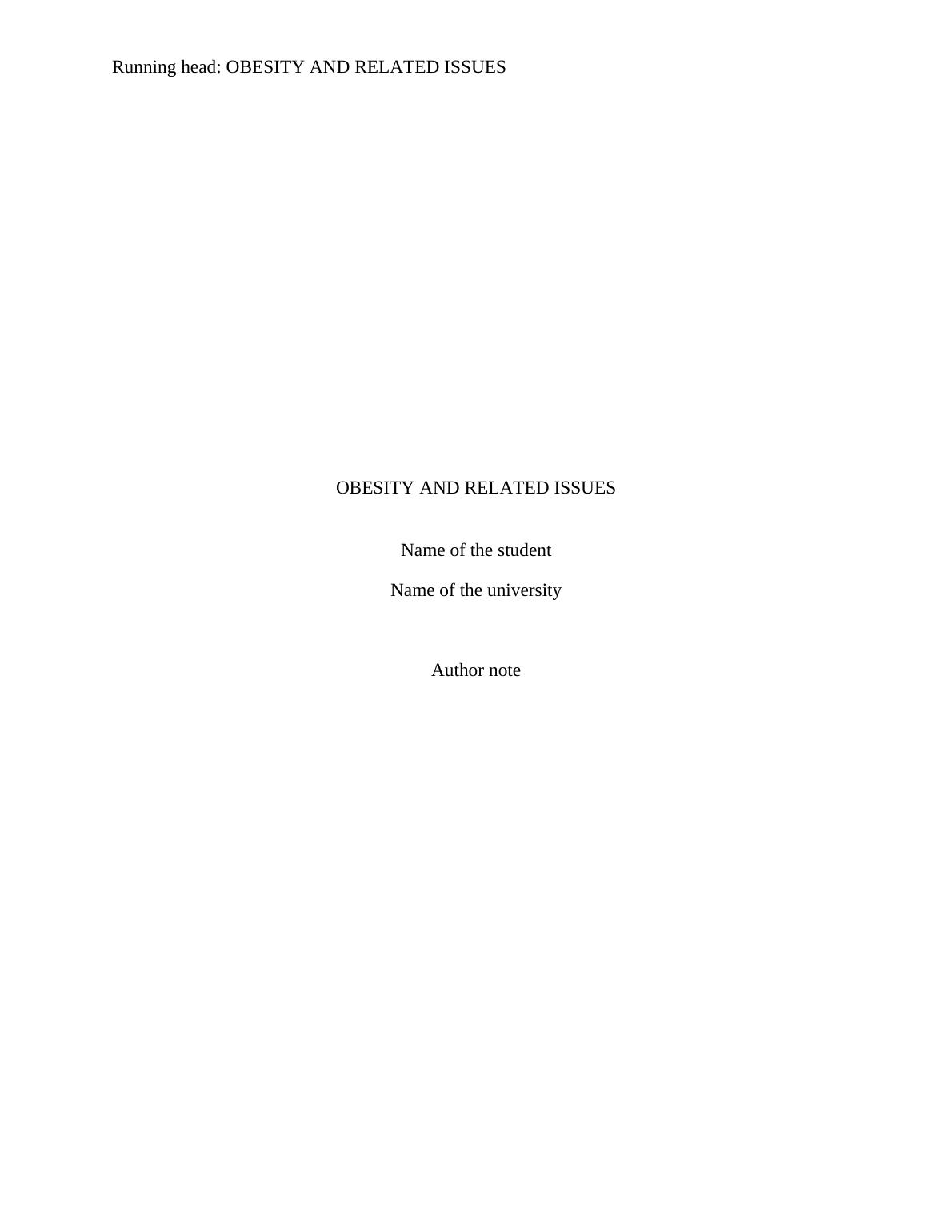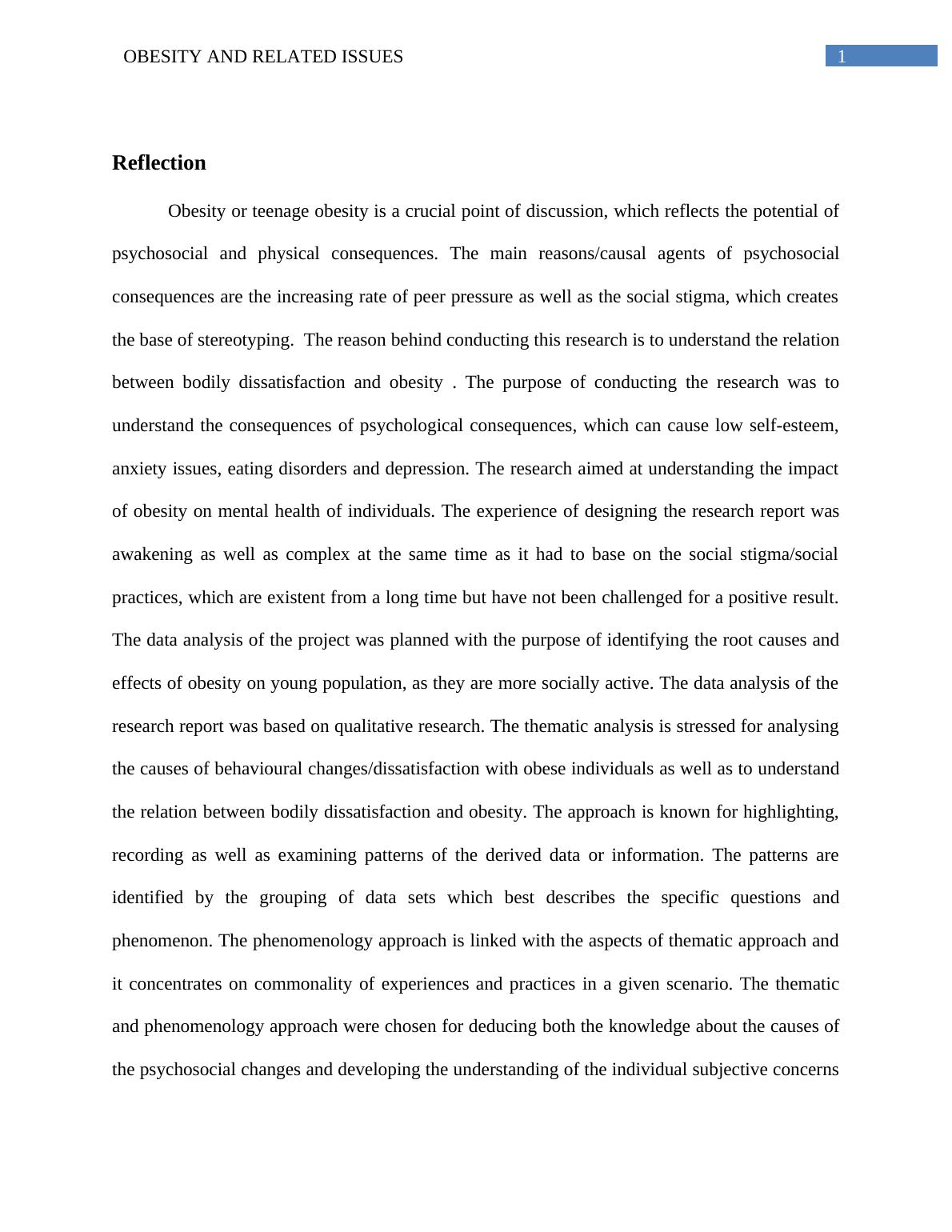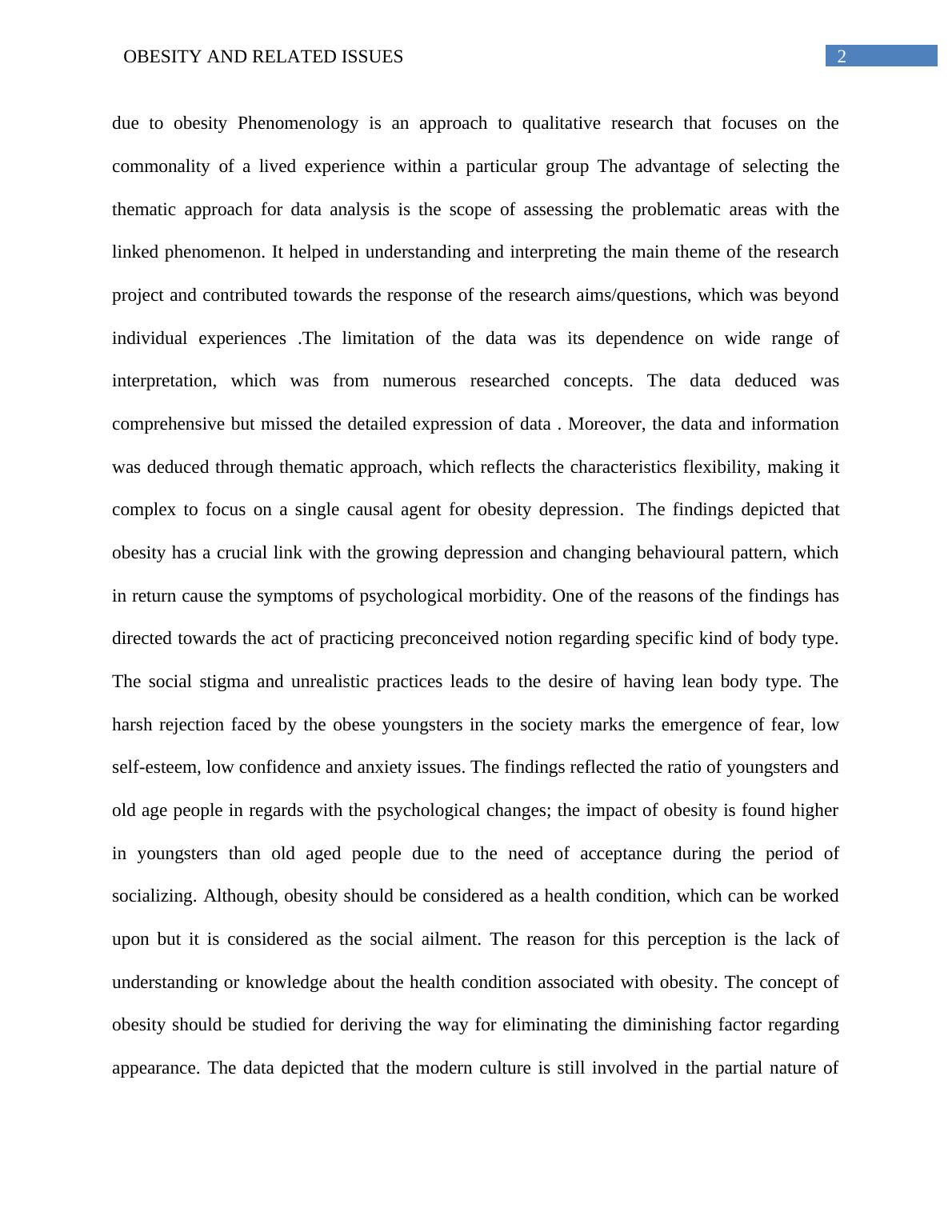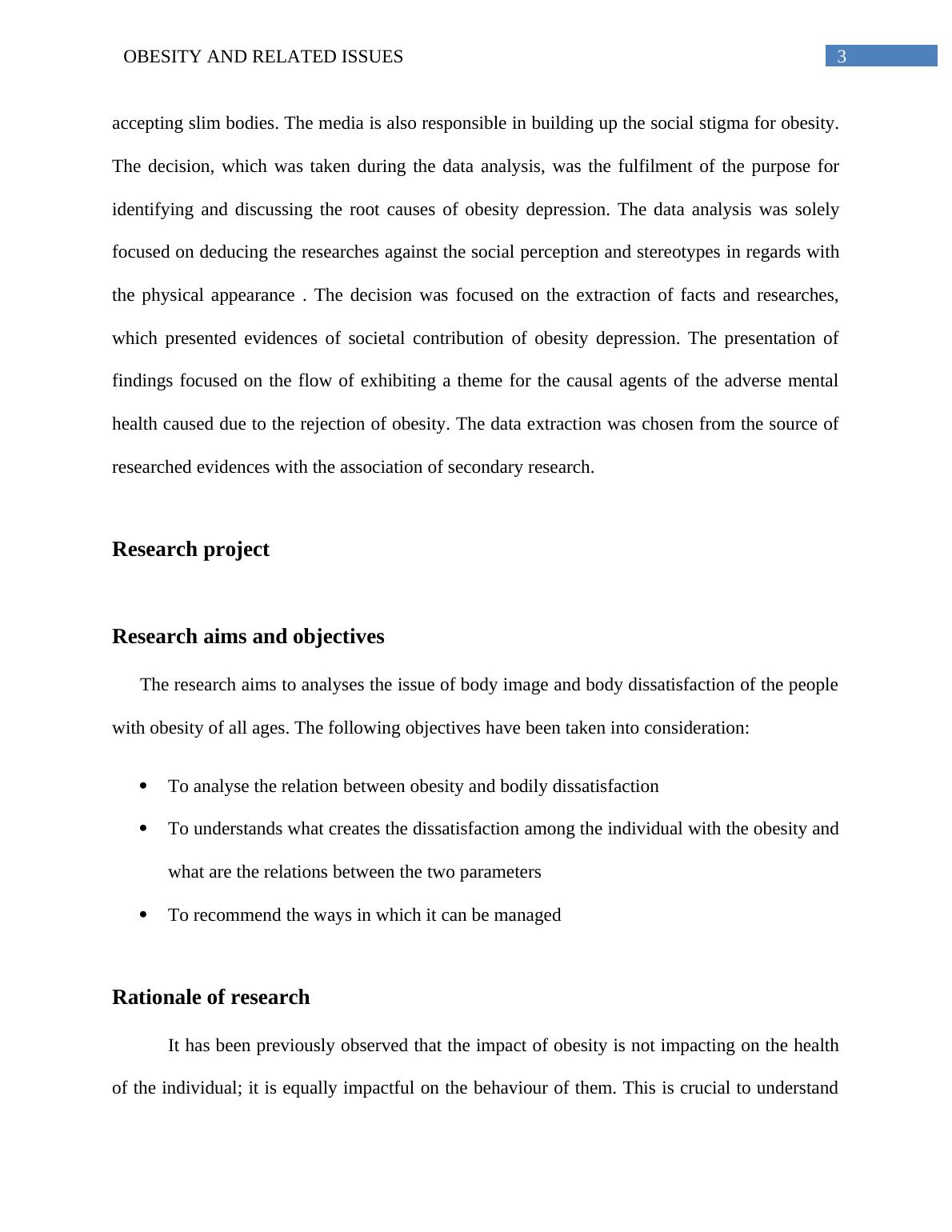Obesity and Related Issues
Analyzing a focus group transcript on weight and obesity with a psychology student moderator and undergraduate psychology student participants.
13 Pages4002 Words53 Views
Added on 2023-01-03
About This Document
This research focuses on the impact of obesity on mental health and the relationship between bodily dissatisfaction and obesity. It aims to understand the consequences of psychological consequences such as low self-esteem, anxiety, eating disorders, and depression. The research uses qualitative research methods and thematic analysis to analyze the causes and effects of obesity on individuals, particularly young people. The findings highlight the link between obesity, depression, and changing behavioral patterns, as well as the societal stigma and unrealistic beauty standards that contribute to body dissatisfaction. Recommendations are provided for managing obesity and improving body image.
Obesity and Related Issues
Analyzing a focus group transcript on weight and obesity with a psychology student moderator and undergraduate psychology student participants.
Added on 2023-01-03
ShareRelated Documents
End of preview
Want to access all the pages? Upload your documents or become a member.
Epidemiology: Observational Studies and Study Designs
|6
|1519
|131
Faculty of Health Case Study 2022
|12
|1282
|11
Definition of Research Tools
|6
|1152
|196
Epidemiology: Study and Analysis of Health and Disease
|7
|1575
|51
Physical abuse on children with special needs
|2
|1738
|41
Scope of Sociology of Religion
|3
|546
|59




